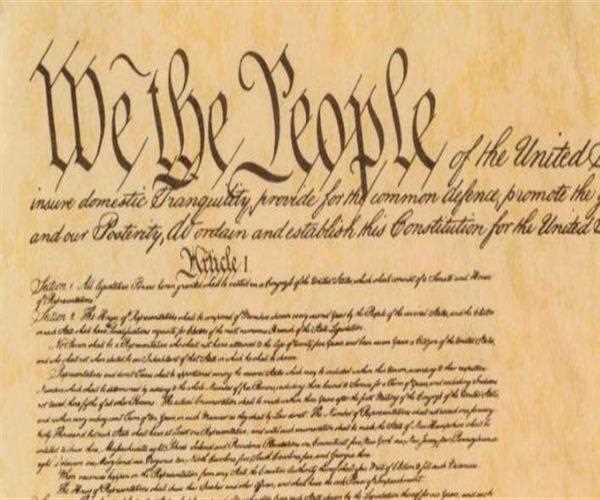
The Preamble of the U.S. Constitution—the archive's well known initial 52 words—acquaints all that is with follow in the Constitution's seven articles and 27 alterations. It declares who is embracing this Constitution: "We the People of the United States." It portrays why it is being received—the reasons behind the order of America's contract of government.
What's more, it portrays what is being embraced: "this Constitution"— a solitary definitive composed content to fill in as crucial tradition that must be adhered to. Composed constitutionalism was an unmistakably American advancement and one that the confining age thought about the new country's most prominent commitment to the study of government.
"Preamble," while exact, doesn't exactly catch the full significance of this arrangement. "Preface" may be taken—we think wrongly—to infer that these words are simply an opening logical prosper or lace without significant impact. Undoubtedly, "prelude" helpfully passes on the possibility that this arrangement doesn't itself present or depict forces of government or privileges of residents.
Those are gone ahead in the meaningful articles and alterations that follow in the primary body of the Constitution's content. It was surely known at the hour of an institution that introductions in authoritative archives were not themselves meaningful arrangements and in this manner ought not be perused to repudiate, extend, or contract the record's considerable terms.
However, that doesn't mean the Constitution's Preamble comes up short on its own legitimate power. An incredible opposite, it is the arrangement of the archive that pronounces the order of the arrangements that follow. Without a doubt, the Preamble has at times been named the "Establishing Clause" of the Constitution, in that it pronounces the reality of appropriation of the Constitution (when adequate states had endorsed it): "We the People of the United States . . . do appoint and set up this Constitution for the United States of America."
Significantly, the Preamble announces who is authorizing this Constitution—the individuals of "the United States." The record is the aggregate institution of all U.S. residents. The Constitution is "possessed" (in a manner of speaking) by the individuals, not by the administration or any branch thereof. We the People are the stewards of the U.S. Constitution and remain eventually answerable for its proceeded with presence and its steadfast understanding.
It is now and then saw that the language "We the People of the United States" was embedded at the Constitutional Convention by the "Advisory group of Style," which picked those words—as opposed to "We the People of the States of . . .", followed by a posting of the thirteen states, for a straightforward down to earth reason: it was indistinct what number of states would really endorse the proposed new constitution. (Article VII proclaimed that the Constitution would become effective once nine of thirteen states had approved it; and as it happened two states, North Carolina and Rhode Island, didn't confirm until after George Washington had been initiated as the principal President under the Constitution.) The Committee of Style in this manner couldn't securely decide to list the entirety of the states in the Preamble. So they chose the language of both "We the People of the United States."
In any case, the language was intentionally picked. Notwithstanding its beginnings in down to earth contemplations or as an issue of "style," the language really picked has significant meaningful outcomes. "We the People of the United States" emphatically bolsters that the Constitution is one for a bound together country, as opposed to a settlement of isolated sovereign states. (This, obviously, had been the game plan under the Articles of Confederation, the record the Constitution was intended to supplant.)
The possibility of nationhood is then affirmed by the primary explanation recounted in the Preamble for embracing the new Constitution—"to shape a more flawless Union." just before the Civil War, President Abraham Lincoln summoned these words on the side of the changelessness of the Union under the Constitution and the unlawfulness of states endeavoring to withdraw from that association.
